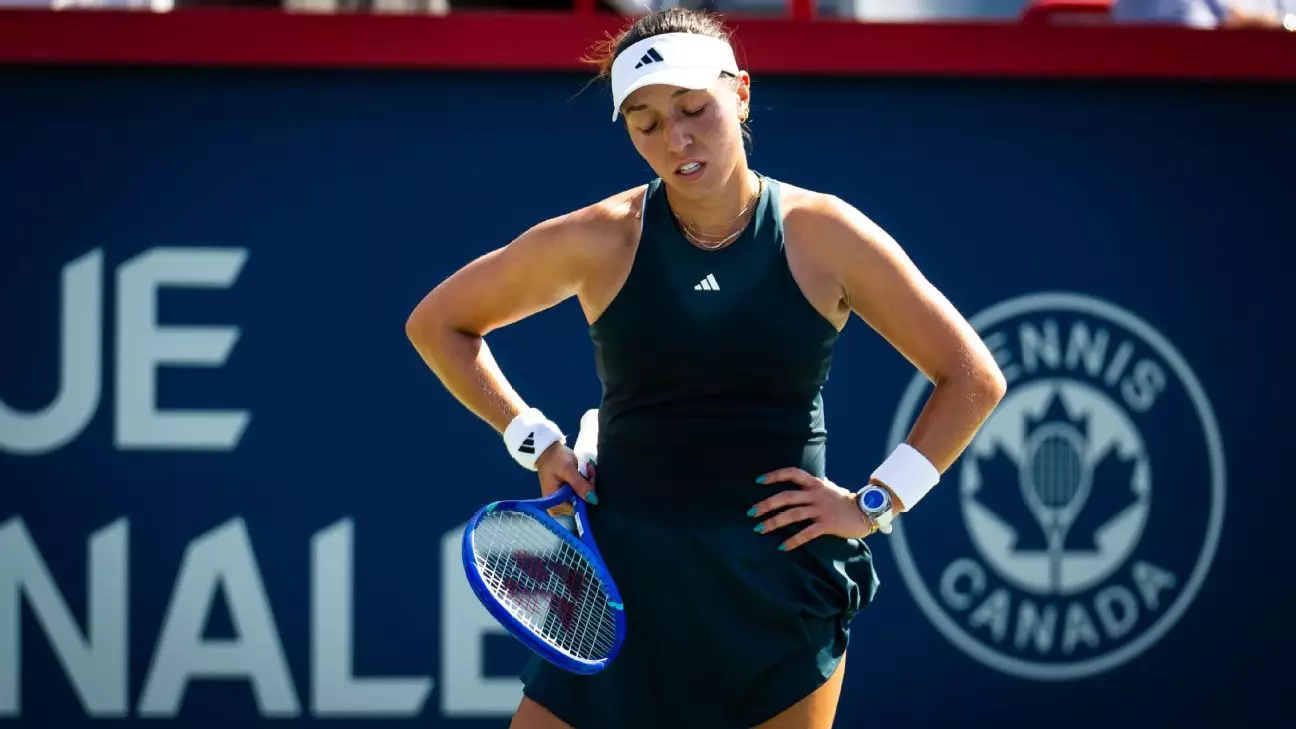In the fiercely competitive world of professional tennis, surprises are often the most compelling stories. The recent upset at the Montreal National Bank Open exemplifies this reality vividly. Anastasija Sevastova, a player whose ranking had plummeted to 386, defied the odds to topple two-time reigning champion Jessica Pegula. Such victories, rooted in grit and resilience, remind us that in tennis, rankings and recent form can sometimes be secondary to sheer determination and strategic prowess. Sevastova’s journey exemplifies that perseverance—battling through injuries, a maternity break, and fluctuating confidence—to prove that talent and tenacity can still carve paths through the brightest spotlight.
Her victory is not just an anomaly but a testament to the unpredictable nature of tennis’s competitive landscape. It underscores a fundamental truth: the sport thrives on the possibility of upsets, on the notion that no player’s journey is fixed until the final point. Sevastova’s experience encourages a broader reflection on how resilience and mental toughness often weigh more heavily than the rankings alone. Her story champions the idea that even in the twilight years of a career, the spirit of a fighter can resurrect dormant potential — a narrative that resonates deeply in a sport where longevity and comebacks are celebrated as much as youth and raw power.
Resilience in the Face of Adversity: The Unwavering Spirit of Tennis Veterans
Sevastova’s remarkable ability to compete after battling a torn ACL and a long hiatus exemplifies an inspiring narrative of resilience. Her character as a fighter—refusing to be defeated by past injuries—underscores an essential element of tennis that often goes unnoticed amid focus on rankings and results. Her strategic game plan, aggressive breaks, and mental resolve yielded a notable victory, reinforcing that perseverance often trumps age and recent form.
Furthermore, her story emphasizes that setbacks—health issues, injuries, or periods away from the game—do not define a player’s potential forever. Instead, they highlight the importance of mental fortitude, unwavering commitment, and strategic patience. Sevastova’s victory, however unlikely on paper, becomes a symbol of hope for other players battling injuries or struggling with confidence. Her performance demonstrates that overcoming personal hurdles can translate into monumental moments, turning careers around and inspiring others to persist through adversity.
Top-Seeded Players Facing Frustration and Fluctuation
The tournament also exposes the fragility inherent in the world’s top players. Jessica Pegula, despite her recent successes, disclosed her dissatisfaction with her current form. Her candid reflection reveals a truth often hidden behind polished performances: even the highest-ranked champions face slumps and self-doubt. The volatility of performance underscores the importance of mental resilience over sheer talent, reminding us that consistency remains the most elusive goal in professional tennis.
Iga Swiatek’s dominant win further exemplifies the disparity that exists at the top echelons of the sport. Her controlled, aggressive play shows that skill remains paramount, but her victory also highlights how psychological composure and strategic adaptation are key to maintaining superiority. Meanwhile, the performances of other seeded players like Osaka and Anisimova, who posted decisive wins, reinforce that mental toughness and tactical clarity are necessary ingredients for sustained success. These athletes showcase that fluctuations are inevitable, but resilience allows a player to rebound and keep pushing forward in the face of the unpredictable rhythm of tournament play.
Breaking the Mold: A New Narrative for Tennis Success
The stories from Montreal reveal that tennis’s narrative is shifting away from predictable outcomes. The rise of veteran players defeating top-ranked opponents, and the ability of players to recapture form after injuries or slumps, challenge traditional notions of peak performance being confined to youth or recent success. These developments highlight that true talent is not solely about physical prowess but also about mental agility, strategic depth, and emotional resilience.
Sevastova’s surprising victory, coupled with upsets by players like Osaka and Svitolina, point to a larger movement: resilience and adaptability are becoming more vital than ever. The sport is evolving into a contest where experience, mental toughness, and strategic intelligence often outmatch raw power or recent momentum. This shift encourages a broader appreciation of seasoned players who refuse to fade quietly into the background, proving that perseverance can defy expectations and redefine what it means to succeed in professional tennis.


Leave a Reply